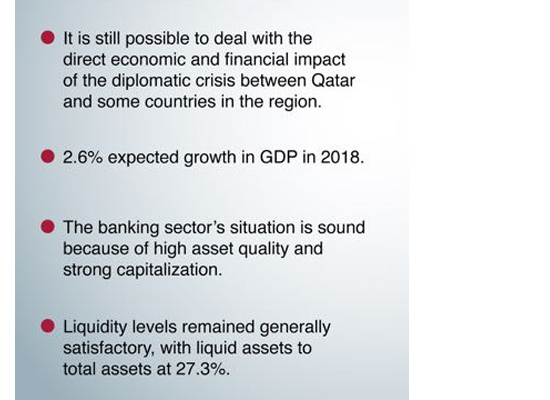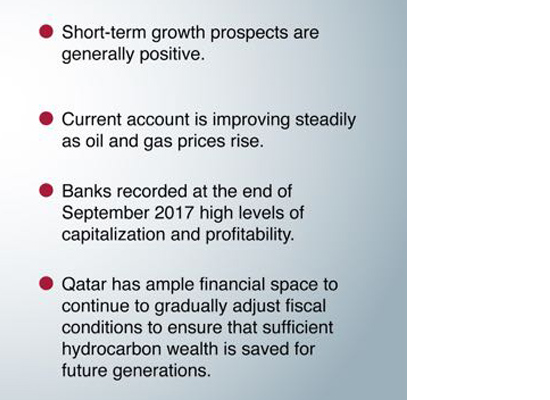Jordan senate meets as protests over IMF-backed austerity continue


*Growth performance resilient; Banking sector remains healthy
Considerable buffers and sound macroeconomic policies have helped Doha absorb shocks from lower hydrocarbon prices and the diplomatic rift with some countries in the region, according to the International Monetary Fund (IMF).
Qatar’s growth performance remains resilient and the direct economic and financial impact of the Gulf crisis has been “manageable”, IMF said in its Article IV consultation with Qatar.
“The availability of significant external and fiscal buffers and the strong financial sector should enable the country to withstand downside risks, including lower-than-envisaged oil prices, tighter global conditions and an escalation of the diplomatic rift,” it said.
Terming that the near-term growth outlook is broadly “positive”, it said overall, GDP (gross domestic product) growth of 2.6% is projected for 2018.
Non-hydrocarbon real GDP growth is estimated to have moderated to about 4% in 2017 due to on-going fiscal consolidation and the effect of the diplomatic rift.
“Inflation is expected to peak at 3.9% in 2018 — as the impact of the value-added tax being introduced during the second half of 2018 would mostly be felt in that year—before easing to 2.2% in the medium term,” IMF said.
Headline inflation remains subdued, primarily due to lower rental prices, it said, adding the realty price index fell 11% in 2017 (year-on-year) after a 53% cumulative during 2013–16, reflecting increased supply of new properties and reduced effective demand.
Finding that the underlying fiscal position continues to improve, it said fiscal deficit is estimated to have narrowed to about 6% of GDP in 2017 from 9.2% in 2016 with the deficit been financed by a combination of domestic and external financing.
Public debt (estimated at 54% of GDP as at end-2017) remains “sustainable”, it said, adding the current account is improving in the context of increased oil and gas.
Qatar’s banking sector remains healthy overall, reflecting high asset quality and strong capitalization. At end-September 2017, banks had high capitalization (capital adequacy ratio of 15.4%), high profitability despite recent moderation (return on assets of 1.6%), low non?performing loans (1.5%), and reasonable provisioning ratio of non?performing loans (85%).
“Liquidity has been generally comfortable––with a liquid asset to total asset ratio of 27.3% ––though bank reserves have declined since 2015,” IMF said.
The IMF directors noted that strengthened expenditure control, with emphasis on further public?service reform and accelerated reform of the public utility companies, would help Qatar improve economic efficiency. They also emphasised the importance of wage reform to reduce the public to private wage gap.

